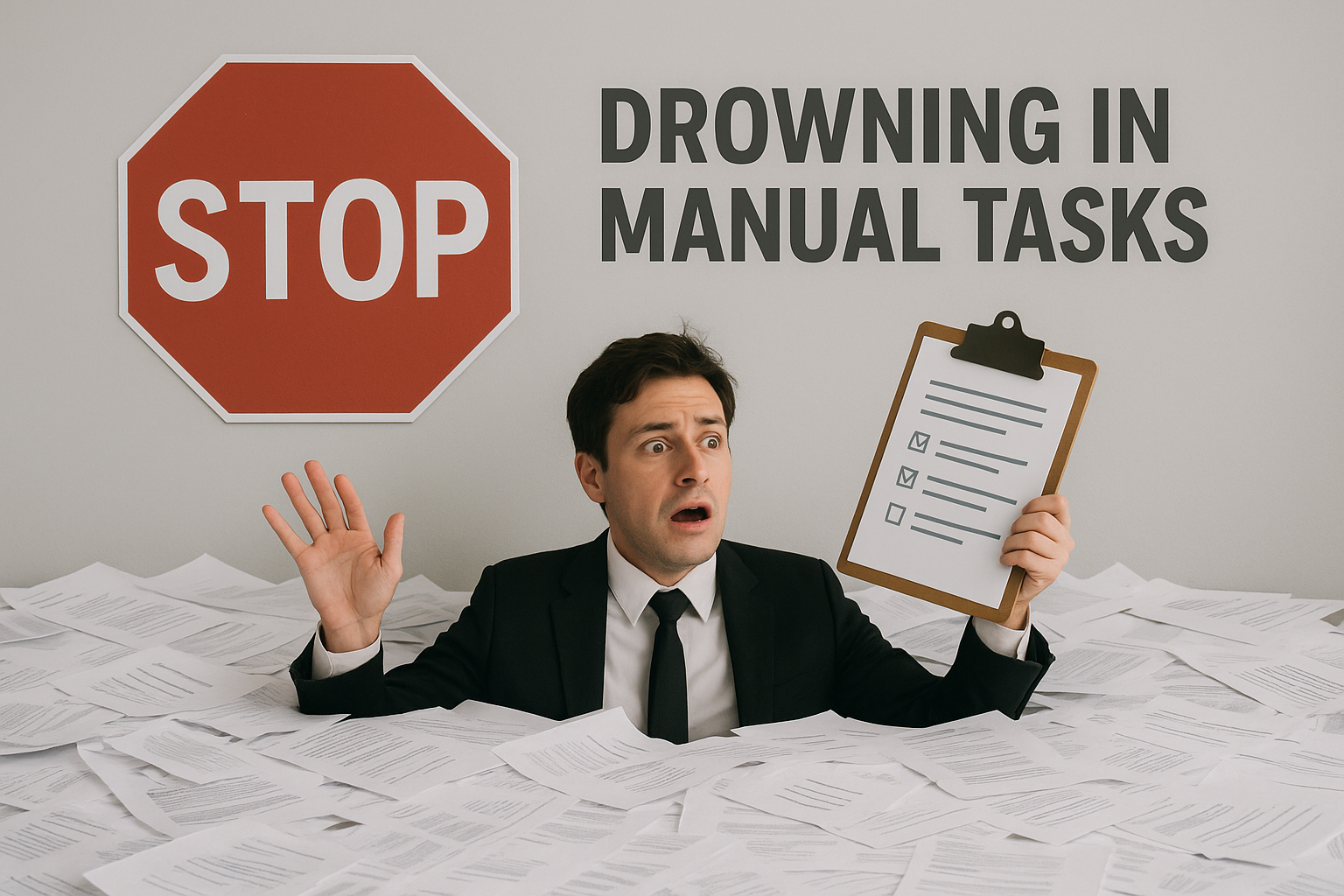October 2022 Newsletter

States move on property based taxes
Queensland backs down on Australia wide land tax assessment
The Queensland Government has backed away from an amendment that would have seen the land tax rate for investment property in Queensland assessed on the value of the investor’s Australia wide land holdings from 1 July 2023, not just the value of their Queensland property. The amendment passed the Queensland Parliament and became law on 30 June 2022. The amendment would see the value of all of the landholder’s Australian investment property assessed, the value of Queensland land tax calculated on taxable Australian wide investments, then apportioned to the Queensland portion of the land. The amendment requires the landholder to declare their interstate landholdings and data from other sources to verify the landholdings. The end result is many investors being tipped into a higher land tax rate.
The Bill states, “The land tax reform is intended to make Queensland’s land tax system fairer by addressing an inequity which can result in a landholder with all of their landholdings in Queensland paying more land tax than a landholder with a similar value of landholdings spread across jurisdictions.” Following the National Cabinet Meeting on 30 September, Premier Palaszczuk rescinded the reform as it relied on the “goodwill of other states, and if we can't get that additional information, I will put that aside.”
Stamp duty or an annual property tax for NSW first home buyers?
First home buyers purchasing property in NSW of up to $1.5m will have a choice of paying stamp duty or an annual property tax from 16 January 2023. The annual property tax payments will be based on the land value of the purchased property. The property tax rates for 2022-23 are:
· $400 plus 0.3% of land value for properties whose owners live in them
· $1,500 plus 1.1% of land value for investment properties.
Property tax assessments will be issued annually to home buyers who take the annual property tax option. As an example, a first buyer purchasing a $1.2m NSW property with a land tax value of $720,000, could pay stamp duty of $50,875 or opt to pay the annual property tax ($2,560 for 2022-23). The property tax rates will be indexed annually. Eligible first home buyers who sign a contract of purchase on or after 16 January 2023 will be eligible to opt into the property tax. If the property tax option is selected, first home buyers must move into the property within 12 months of purchase and live in it continuously for at least 6 months. The annual property tax is only applicable to the purchaser. If the property is sold, the property tax does not apply to subsequent purchasers. For eligibility details, see First Home Buyer Choice on the NSW Government website.
Legislation enabling the property tax is expected before the NSW Parliament this month. If passed, eligible first home buyers who sign a contract of purchase between the passage of the legislation and 15 January 2023 will be eligible to opt into the property tax. These purchasers will pay land stamp duty but will be able to apply for and receive a refund of that duty if they opt into property tax.
COVID downgraded but not gone
National Cabinet agreed to end the mandatory isolation requirements for COVID-19 effective from 14 October 2022. Each state and territory has, or will, implement the end of the isolation rules. The Pandemic Leave Disaster Payment, the payment to workers who have lost income they needed to self isolate or care for someone with COVID-19, also end on 14 October. The Pandemic Leave Disaster Payment was extended beyond its 30 June end date but restricting the number of times claims can be made in a 6 month period. While the Pandemic Leave Disaster Payment will end, National Cabinet agreed to continue targeted financial support for casual workers, on the same basis as the disaster payment, for workers in aged care, disability care, aboriginal healthcare and hospital care sectors. Final details of this new payment are yet to be released.
ATO contacts ‘at risk’ professional services firms
New guidelines for professional services firms - lawyers, architects, medical practitioners etc., came into effect on 1 July 2022. The guidance takes a strong stance on structures designed to divert income in a way that results in principal practitioners receiving relatively small amounts of income personally for their work and reducing their taxable income. The ATO is now contacting professionals who they believe might be at risk. Any structural changes that need to be made to reduce risk, should be completed by the end of the 2022-23 financial year. Where the ATO deems that income has been diverted inappropriately to create a tax benefit, they will remove that benefit and significant penalties may apply.
1 October minimum wage increase
Minimum wages in 10 awards in the aviation, tourism and hospitality sectors increased from 1 October 2022. The increase happens from the first full pay period on or after 1 October 2022. See the Fair Work Ombudsman for more details.
Director ID number deadline looming
If you are a Director of a company or registered foreign company and have not applied for your Director ID Number, the deadline is 30 November 2022. Don’t leave it until the last minute!
Australian super funds gorge on cryptocurrency
The value of cryptocurrency assets inside Australian self managed superannuation funds (SMSFs) increased by 589.9% ($1.17bn) between June 2019 and June 2022, according to the latest ATO statistics. While cryptocurrency is a relatively small asset class at only 0.16% of the $837bn held in SMSFs, it is a growing asset class, larger than collectibles and personal use assets, and overseas property. Smaller funds, with an asset value below $200,000, are more likely to have a larger proportion of their value in cryptocurrency.
ASIC warns of SMSF cryptocurrency scams
Earlier this year, the Australian Securities and Investments Commission (ASIC) issued a warning on an increase in marketing encouraging Australians to switch from retail superannuation funds to SMSFs so they can invest in ‘high return’ portfolios. The regulator states that crypto-assets are a high risk and speculative investment and best practice is to seek advice from a licensed financial adviser before agreeing to transfer superannuation out of a regulated fund into an SMSF. An example of one of these schemes was A One Multi Services Pty Ltd that was shut down by ASIC late last year. The company promoted a scheme encouraging investors to roll their superannuation into an SMSF, then for the SMSF to loan money to A One Multi to generate “returns of between 10% and 20% on the investment and perhaps as high as 26%.” Over 60 SMSFs transferred $25 million into A One Multi’s accounts between January 2019 and June 2021. The money “invested” for the clients, between $7 million to $22 million of Bitcoin, was held in the name of one of the directors. An additional $5.7m was used by the directors to acquire property and luxury cars.
Investing in crypto
Trustees are free to invest in assets that meet the requirements of the fund and comply with the regulatory requirements:
- Trust Deed - must allow for cryptocurrency assets. Most SMSF trust deeds are drafted broadly to enable trustees to invest in assets permitted by the superannuation laws and leave the investment strategy to manage the choice of assets and their appropriateness. However, it is important to check.
- Investment strategy - With cryptocurrency’s high volatility and risks, there must be clearly articulated information in the Investment Strategy. That is, it must articulate the trustees’ plan for making, holding and realising assets in a in a way that is consistent with the retirement goals of members being mindful of the member’s individual circumstances.
- Separation of assets – cryptocurrency assets must be held in a wallet in the name of the SMSF and the IP address is provided to the SMSF auditors to verify the transactions (against the fund bank account). Problems often arise when a wallet (in the name of the SMSF) is connected to a personal credit card to acquire cryptocurrency. In these cases, the payment may be considered as either a contribution or a loan to the SMSF.
- Sole purpose test - Your SMSF needs to meet the sole purpose test to be eligible for the tax concessions normally available to super funds. This means your fund needs to be maintained for the sole purpose of providing retirement benefits to your members, or to their dependants if a member dies before retirement.
Lessons from a data breach
The Optus data breach is top of mind for a lot of Australians, particularly those who have had their data breached. For business, the breach is a timely warning on the importance of understanding what data is held on your customers (and should you hold it?), how it is secured, how your systems work and the process to identify gaps and deficiencies, the appropriate actions if and when a breach occurs, and the impact on your relationship to your customer. This is not something that can be outsourced to IT but a whole of business issue.
The obligations on business
We all know that no system is 100% secure. For Optus, this is not the first time. In 2015, Optus agreed to an enforceable undertaking for breaching the Privacy Act in 2015. A data breach happens when personal information is accessed or disclosed without authorisation or is lost. If the Privacy Act 1988 covers your business, you must notify affected individuals and the Office of the Australian Information Commissioner when a data breach involving personal information is likely to result in serious harm. The notification must be as soon as practicable but is expected to be no later than 30 days. Every day counts. A business must take all reasonable steps to comply with its obligations to prevent data breaches occurring. These obligations are not limited to preventing cyber attacks. Malicious or criminal attacks represent 55% of all reported data breaches. But, human error is responsible for 41% and 4% through system faults. Where human error was involved, 43% was where personal information was emailed to the wrong recipient and 21% the unintended release or publication of personal information.
Helping to protect against data breaches
· Understand your Privacy Act obligations. Specific industries and businesses that hold specific types of data often have advanced requirements.
· Review the personal information held on customers. Is their full date of birth a necessary part of what your business does? If you need to verify identify, do those identification documents really need to be stored once they have been validated? Or is positive confirmation enough? Is the data held securely and is access limited to only those who require access?
· Ensuring systems have multifactor authentication
· Improving staff awareness of not only cyber threats and how to prevent them - phishing, fraudulent messages etc, but reviewing how personal data is managed and accessed.
· Understanding your systems and how they work together to prevent security gaps or ‘backdoor’ systems access.
Banking business income to a private account
The ATO has stated that it has "no concerns" with business owners banking their business takings or other sales in private accounts, but that this may become an issue when this income isn't reported. Therefore, the ATO notes that a good way to avoid this problem is to establish a separate business bank account and only deposit sales and other business income into this account, as this can help with record keeping and monitoring the business’s cash flow.
The ATO uses many tools to identify income earned and to check if it matches income reported, and reminds taxpayers that business income includes all sales, whether they're cash or electronic (for example, internet sales), and they must all be reported on the business’s tax return (as well as any earnings for services the business provides). If you are unsure about what income you need to declare, feel free to contact our office.
'Talking tax' with new workers
The ATO is reminding employers that have taken on new employees that those employees can complete a TFN declaration through ATO online services, and that this is an easy way for them to provide both their employer and the ATO with the information needed.
If a new employee has a myGov account linked to the ATO, they can access ATO online services;
- go to the ‘Employment’ menu; and
- select ‘New employment’ and complete the form.
This sends the TFN declaration details straight to the ATO, so the employer doesn't have to.
Employees will need their employer's ABN to complete the form and, once they’ve submitted it, they need to print it and give their employer the summary of their tax details so the employer can input the data into their system. If an employer's payroll software can link to the online commencement forms, it will automatically receive any new employees' information from the ATO, saving them time spent otherwise entering the information manually. Employers can also use the New employment form to collect a range of information contained in other forms, and employees can use it to authorise variations to the amount to be withheld from their pay for tax or the Medicare levy, or to advise of their choice of super fund. They can also use it to update their tax circumstances with their employer; for example, if their residency status has changed or they are claiming the tax-free threshold from a different employer.
However, employers can continue to use their current processes when preferred, including providing a paper TFN declaration where employees can't create a myGov account or don’t have access to the internet.
How the myGov update affects taxpayers
Clients using myGov will see that it has recently been updated with a new look and more features. When signed in to myGov, clients might receive notifications through ‘Payments and claims’ from other government services, such as Centrelink. However, the ATO has stated that it will not communicate using this feature. Instead, the ATO will continue to send messages to the myGov Inbox, and to tax agents on behalf of their clients, if that’s their communication preference.
Therefore, clients don’t need to do anything different, and can still:
- find myGov at the same website address (i.e., my.gov.au);
- sign in using their current sign-in details; and
- have access to all their linked services, including the ATO.
Input tax credits denied due to lodging BASs late
The AAT has held that a partnership’s entitlement to $16,361 of input tax credits claimed for the quarterly periods of 1 July 2012 to 31 March 2017 had ceased by the time the associated BASs were lodged with the ATO on 21 June 2021, and therefore the ATO did not need to pay the taxpayer a refund. The operation of the GST Act means that, unless an extension of time to lodge a BAS has been granted prior to the expiry of 4 years after the day on which it was required to be given to the ATO, the entitlement to input tax credits immediately ceases. The ATO has no discretion to get around this.
Valuing fund assets for an SMSF's annual return
The ATO has provided the following reminder and general advice for SMSF trustees regarding their obligations to value the assets annually. One of many responsibilities trustees have when managing an SMSF is valuing the fund's assets at market value. This must be done every income year, so the ATO knows the SMSF has complied with super laws.The market value of an asset is the amount someone could be reasonably expected to pay if the asset was for sale.
Each year, the asset valuations will be reviewed by the fund's approved SMSF auditor as part of the annual audit prior to lodgment of the SMSF's annual return ('SAR'). The auditor will check that assets have been valued correctly, and assess and document whether the basis for the valuation is appropriate given the nature of the asset. Trustees are reminded to get their valuations done before they go to the auditor, as this will streamline the process and avoid delays. It is also the trustees' responsibility to provide objective and supportable evidence to the auditor for the valuation of the fund's assets, including all relevant documents requested by the auditor. Failure to do so could result in a delay in auditing the fund and potential late lodgment of the fund's annual return (and could also result in a contravention if the auditor believes mistakes have been made).
The ATO says trustees should "start researching now" to find who can value the fund's assets and what type of evidence is needed to support the valuation, as this can take time. In some instances, the law requires valuations to be undertaken by a qualified, independent valuer.
Super guarantee contribution due date for September 2022 quarter
The due date for employers to make super guarantee contributions for their employees for the September 2022 quarter is 28 October 2022.
Varying PAYG instalments
The ATO is reminding taxpayers that they can vary their pay as you go ('PAYG') instalments if they think the amount they pay now will be more or less than their expected tax liability for the year, by lodging a variation through myGov or Online services for business. Instalments for those who are PAYG instalment amount payers have been increased by the gross domestic product ('GDP') adjustment factor of 2% for the 2022/23 income year.
Please Note: Many of the comments in this publication are general in nature and anyone intending to apply the information to practical circumstances should seek professional advice to independently verify their interpretation and the information’s applicability to their particular circumstances. Should you have any further questions, please email us at RGA Business and Tax Accountants at reception@rgaaccounting.com.au . All rights reserved. Brought to you by RGA Business and Tax Accountants.









